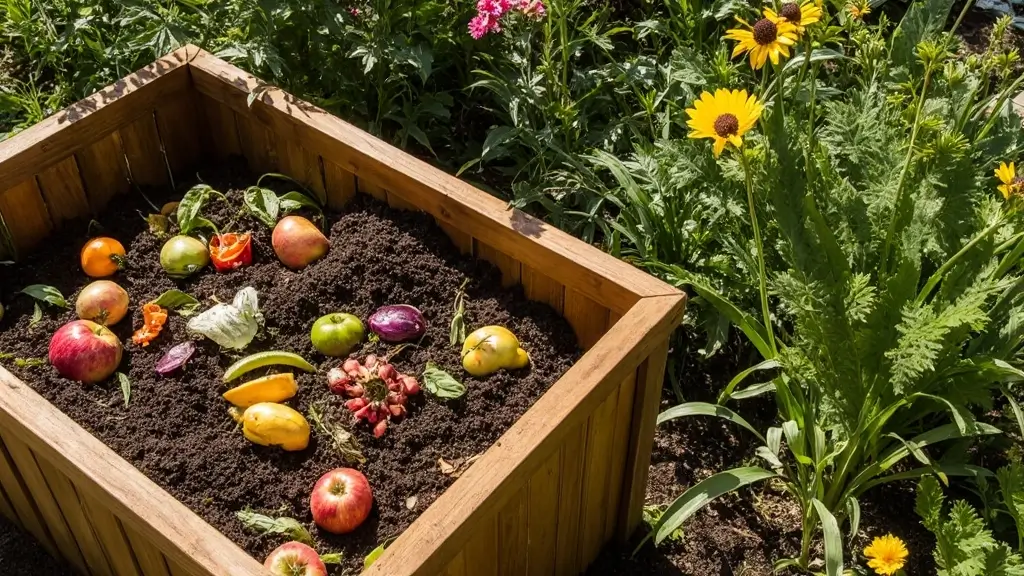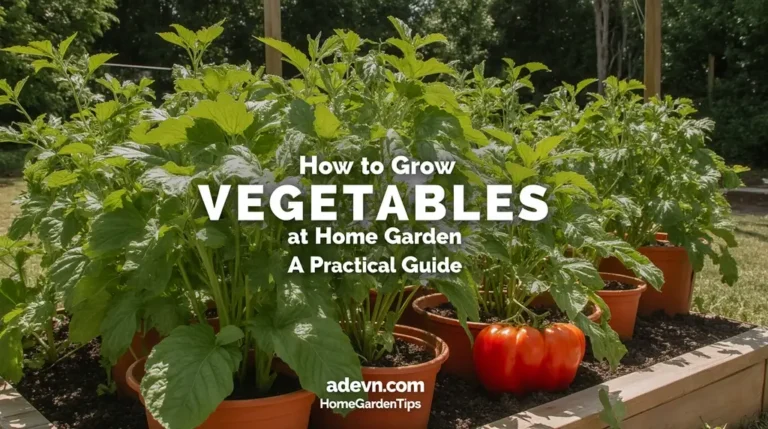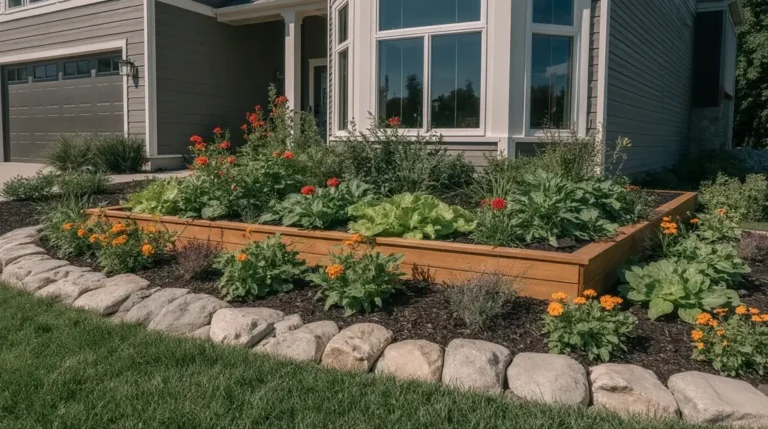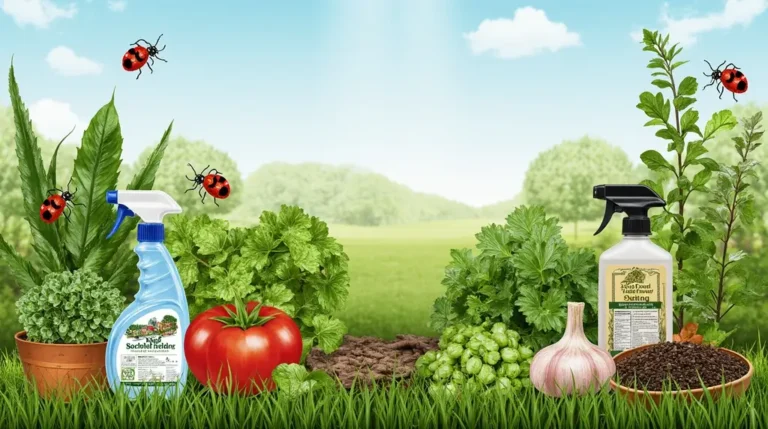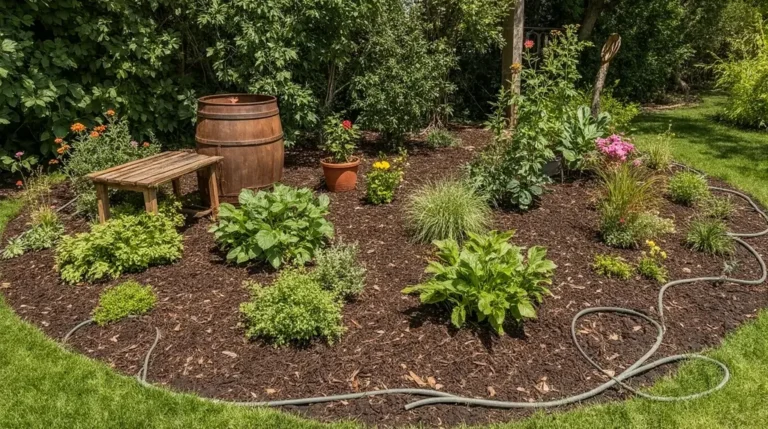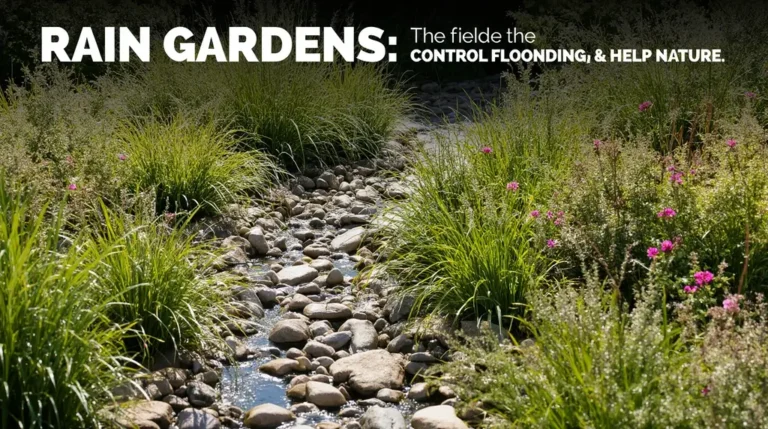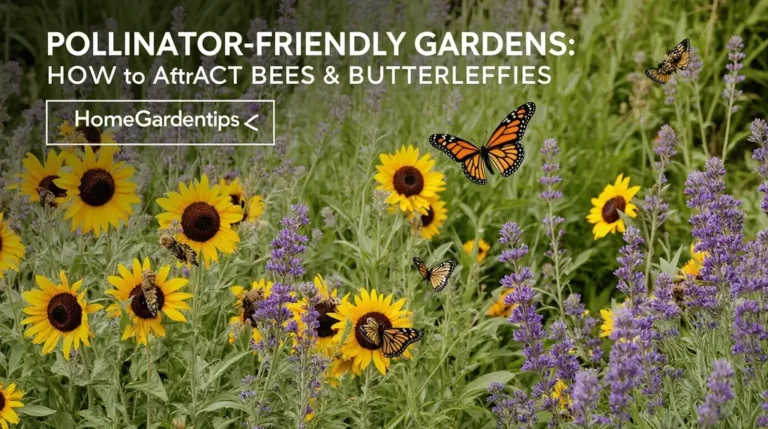Compostieng At Home: Turn Kitchen Waste into Garden Gold
Table of Contents
Introduction
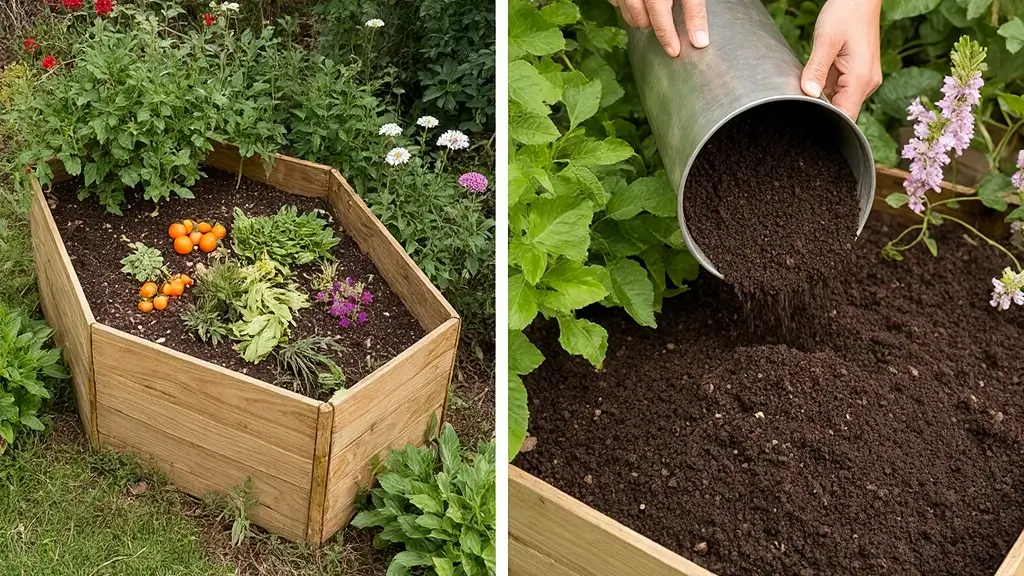

Every day, millions of households throw away valuable organic matter that could transform their gardens into thriving ecosystems. Composting at home represents one of the most rewarding sustainable practices you can adopt, converting everyday kitchen scraps into nutrient-rich soil amendment that gardeners often call “black gold.” This simple yet powerful process not only reduces your environmental footprint but also creates premium fertilizer that would cost hundreds of dollars if purchased commercially.
The beauty of home composting lies in its accessibility—anyone with a small outdoor space, or even just a balcony, can participate in this ancient practice that returns organic matter to the earth. By embracing eco-friendly gardening through composting, you’re joining a movement that transforms waste into wealth while nurturing healthier plants and contributing to environmental sustainability. For chemical-free pest solutions, visit our Organic Pest Control: Natural Solutions Easy That Work.
Why Composting Is Both Eco-Friendly and Cost-Effective
The environmental benefits of composting at home extend far beyond your garden boundaries. When organic waste ends up in landfills, it decomposes anaerobically, producing methane—a greenhouse gas 25 times more potent than carbon dioxide. By composting these materials instead, you’re actively reducing your carbon footprint while creating valuable resources for your garden.
From a financial perspective, composting delivers exceptional returns on minimal investment. The average household spends $50-100 annually on commercial fertilizers and soil amendments. Meanwhile, a basic composting system can be established for under $30 and will produce hundreds of pounds of premium organic compost DIY materials annually. This translates to significant savings while providing superior nutrition for your plants compared to synthetic alternatives.
Beyond direct cost savings, healthy compost-enriched soil requires less water, fewer pest control measures, and minimal additional fertilizers. These compounding benefits make composting one of the most economically sound gardening investments you can make.
What Materials Can and Cannot Be Composted
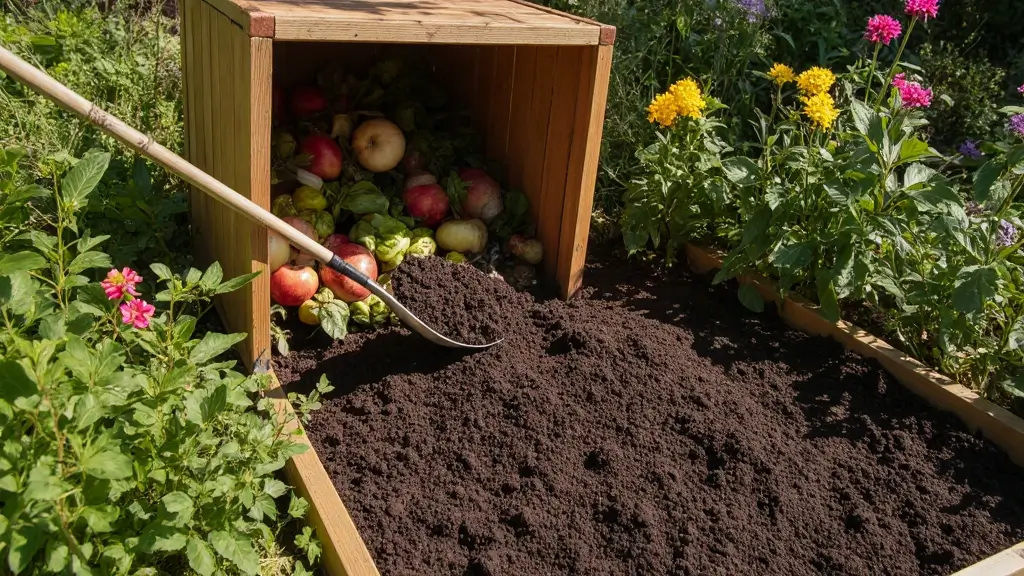

Understanding what belongs in your compost pile is crucial for success. Composting at home relies on balancing “green” nitrogen-rich materials with “brown” carbon-rich components to create optimal decomposition conditions.
Green Materials (Nitrogen-Rich)
- Fruit and vegetable scraps
- Coffee grounds and tea bags (remove staples)
- Fresh grass clippings
- Plant trimmings and flower cuttings
- Eggshells (crushed for faster decomposition)
- Fresh kitchen herbs and leafy greens
Brown Materials (Carbon-Rich)
- Dried leaves and pine needles
- Newspaper and cardboard (shredded, using soy-based inks)
- Straw and hay
- Wood chips and sawdust (untreated wood only)
- Paper towels and napkins (unbleached)
- Dryer lint from natural fibers
Materials to Avoid
Never add meat, fish, dairy products, or oily foods to your compost pile, as these attract pests and create unpleasant odors. Similarly, avoid pet waste, diseased plants, weeds with seeds, and chemically treated materials. Coal ash, charcoal, and glossy magazines should also be excluded due to potential contamination concerns.
Simple Methods for Starting Your Compost System
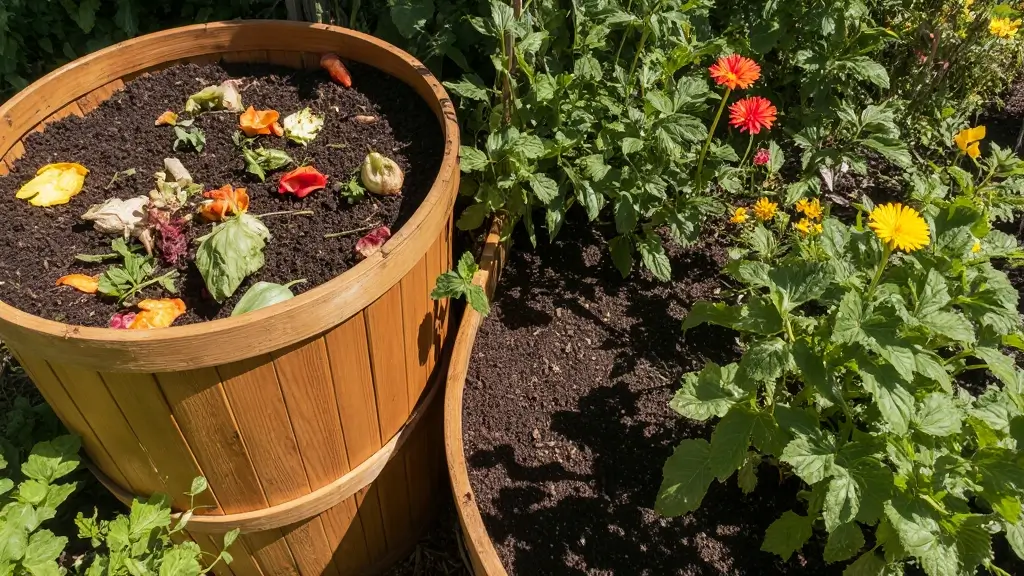

Beginning your organic compost DIY journey doesn’t require expensive equipment or extensive knowledge. Several effective methods suit different living situations and commitment levels.
Traditional Compost Pile
The simplest approach involves designating a corner of your yard for compost materials. Create a pile approximately 3 feet wide, 3 feet deep, and 3 feet high—this size generates sufficient heat for proper decomposition while remaining manageable. Layer green and brown materials in roughly equal ratios, ensuring adequate air circulation by turning the pile monthly.
Bin Composting
Enclosed bins offer better aesthetics and pest control while maintaining composting efficiency. You can purchase commercial bins or construct simple structures using chicken wire, wooden pallets, or plastic containers with ventilation holes. Three-bin systems allow continuous composting by moving materials through progressive stages of decomposition.
Tumbler Composting
Rotating compost tumblers accelerate the decomposition process and simplify pile maintenance. These enclosed systems typically produce finished compost in 6-8 weeks compared to 6-12 months for traditional piles. While initially more expensive, tumblers suit urban gardeners with limited space and time.
Vermicomposting
Worm composting works excellently for apartment dwellers and those with minimal outdoor space. Red wiggler worms consume kitchen scraps and produce castings—extremely rich fertilizer perfect for houseplants and container gardens. Vermicomposting systems operate odor-free when properly maintained and can be housed indoors year-round.
Tips for Healthy, Odor-Free Composting
Successful composting at home requires attention to several key factors that ensure proper decomposition while preventing common problems. If you’re interested in eco-friendly gardening, don’t miss our Sustainable Gardening Tips: How to Grow More with Less Water for more tips.
Maintain Proper Ratios
The ideal carbon-to-nitrogen ratio ranges from 25:1 to 30:1. In practical terms, this means adding roughly equal volumes of green and brown materials, though browns typically weigh less. If your pile becomes too wet or develops ammonia odors, add more brown materials. Conversely, slow decomposition often indicates insufficient nitrogen-rich greens.
Monitor Moisture Levels
Your compost should feel like a wrung-out sponge—moist but not waterlogged. Excessive moisture creates anaerobic conditions leading to foul odors and slow decomposition. Cover piles during heavy rains and add dry materials if needed. Conversely, drought conditions halt decomposition, requiring occasional watering during dry spells.
Ensure Adequate Aeration
Beneficial microorganisms require oxygen for efficient decomposition. Turn traditional piles every 2-4 weeks using a pitchfork or specialized compost tool. Signs of insufficient oxygen include strong ammonia smells and slimy textures. Proper aeration maintains temperatures between 120-160°F in active piles, indicating healthy microbial activity.
Size Materials Appropriately
Smaller pieces decompose faster than large chunks. Chop kitchen scraps into 1-2 inch pieces and shred leaves when possible. However, avoid making everything too small, as some coarser materials help maintain air pockets essential for proper aeration.
Benefits of Using Compost in Your Garden
The advantages of incorporating finished compost into your eco-friendly gardening practices extend throughout your entire landscape ecosystem.
Soil Structure Improvement
Compost acts as a soil conditioner, improving both clay and sandy soils. In heavy clay, organic matter increases porosity and drainage while reducing compaction. Sandy soils benefit from increased water retention and nutrient-holding capacity. This improved soil structure creates optimal growing conditions for beneficial soil organisms and plant roots.
Enhanced Plant Growth and Health
Plants grown in compost-enriched soil demonstrate increased vigor, better disease resistance, and improved stress tolerance. The slow-release nutrients in compost provide sustained plant nutrition without the boom-bust cycles associated with synthetic fertilizers. Additionally, beneficial microorganisms in compost form symbiotic relationships with plant roots, enhancing nutrient uptake and overall plant health.
Water Conservation Benefits
Compost-amended soils retain moisture more effectively, reducing irrigation requirements by up to 30%. This water-holding capacity proves especially valuable during drought conditions and helps maintain consistent soil moisture levels that promote steady plant growth.
Pest and Disease Suppression
Healthy, compost-rich soils support diverse beneficial microorganism populations that naturally suppress soil-borne diseases and harmful pests. This biological pest control reduces reliance on chemical interventions while creating more balanced garden ecosystems.
Long-term Soil Building
Unlike synthetic fertilizers that provide quick nutrition without improving soil health, compost builds soil organic matter over time. This cumulative effect creates increasingly fertile growing conditions that support more productive and resilient gardens year after year.
Household Waste Reduction Impact
Composting at home significantly reduces household waste streams while creating valuable resources. The average family generates 300-400 pounds of compostable organic waste annually—materials that otherwise contribute to overflowing landfills and methane emissions.
By diverting kitchen scraps, yard trimmings, and paper products to your compost system, you can reduce total household waste by 20-30%. This waste reduction translates to lower garbage collection costs in areas with volume-based pricing while supporting broader community sustainability goals.
Furthermore, composting food scraps reduces the weight and odor of regular garbage, making waste management more pleasant and efficient. Many families report needing fewer garbage collection services after implementing comprehensive composting programs.
Getting Started: Small Steps for Big Results
Beginning your organic compost DIY journey doesn’t require perfection—start small and expand your system as experience and confidence grow. Begin by composting coffee grounds, fruit peels, and fallen leaves while learning proper ratios and maintenance techniques.
Consider starting with a simple pile or small bin before investing in more sophisticated systems. Many successful composters began with repurposed containers or basic three-bin setups constructed from readily available materials.
Consistency matters more than complexity in composting success. Establish routines for collecting kitchen scraps, adding materials to your pile, and performing basic maintenance tasks. Even 10 minutes weekly can maintain an effective composting system that produces valuable soil amendments.
Conclusion: Embrace the Satisfaction of Creating Garden Gold
Composting at home represents one of the most rewarding sustainable practices available to modern gardeners. This simple process transforms everyday waste into premium soil amendment while reducing environmental impact and saving money on commercial fertilizers. Want to build a healthier garden ecosystem? Don’t miss our related posts on Organic Vegetable Gardening: A Beginner’s Guide.
The journey from kitchen scraps to garden gold requires patience, but the rewards extend far beyond the finished compost itself. You’ll develop deeper connections with natural cycles, reduce household waste, and create thriving garden ecosystems that support both plants and beneficial organisms.
Start small, stay consistent, and embrace the learning process as you discover the satisfaction of creating free organic fertilizer from everyday scraps. Your garden—and the planet—will thank you for this commitment to eco-friendly gardening through composting. Remember, every apple core and coffee ground represents an opportunity to nurture healthier soil and more productive gardens while contributing to environmental sustainability.
Whether you’re managing a small balcony container garden or acres of landscape, composting offers scalable solutions that grow with your needs and interests. Begin today, and within months, you’ll be harvesting your first batch of homemade garden gold.
How do I start composting in a small kitchen?
You can begin with a small container or countertop compost bin. Collect fruit and vegetable scraps, coffee grounds, and eggshells, but avoid meat or dairy. Regularly stir or shake the container to speed up decomposition.

